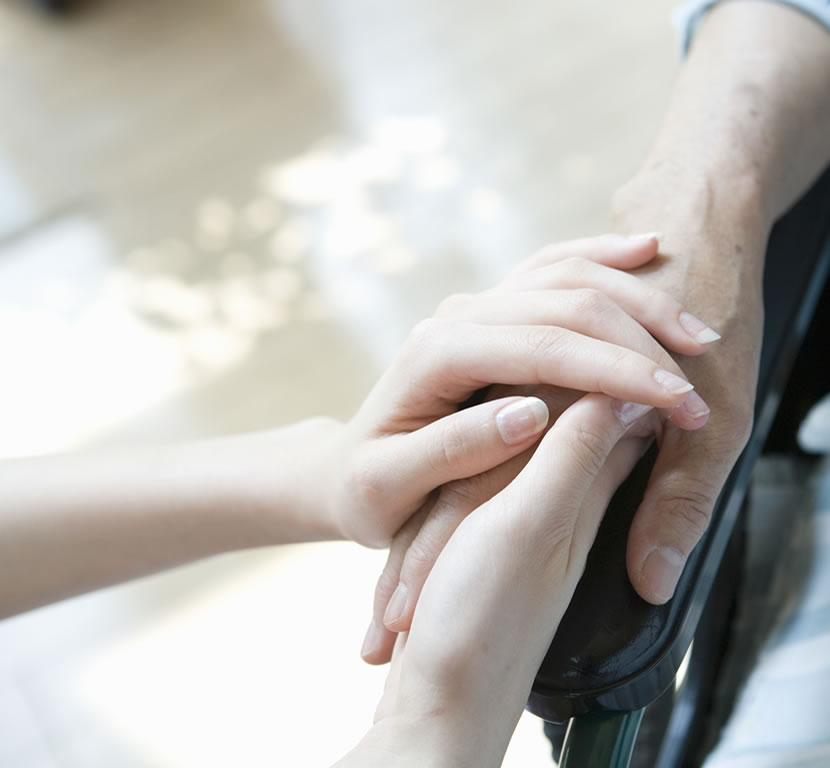About Help for Caregivers
Meet Jane Hamilton
 I’ve been a psychiatric nurse for over 40 years and a family caregiver for over 20 years. Although caring for others has been meaningful and fulfilling—it has not always been easy. Being a nurse was physically, mentally, and emotionally demanding work. But accompanying those I love through pain and severe illness challenged me on a much deeper level, touching my heart and soul in profound ways that changed me and called me into my current work, caring for caregivers. Easing the burden of caregiver stress and equipping caregivers for their journey is my mission.
I’ve been a psychiatric nurse for over 40 years and a family caregiver for over 20 years. Although caring for others has been meaningful and fulfilling—it has not always been easy. Being a nurse was physically, mentally, and emotionally demanding work. But accompanying those I love through pain and severe illness challenged me on a much deeper level, touching my heart and soul in profound ways that changed me and called me into my current work, caring for caregivers. Easing the burden of caregiver stress and equipping caregivers for their journey is my mission.
My family caregiving journey began when my husband suffered through nearly seven years of relentless pain while our son was a young child. Both my father and father-in-law battled lung cancer. Dad was legally blind in the last twenty years of his life. A major stroke disabled and finally took my mother-in-law. Other dear friends and family have struggled with and died from various forms of cancer. It took Parkinson’s disease and dementia nearly eight years to ravage and finally devour my mother. That was the worst and last of my caregiving experiences. Mom died in September 2007. At the end of my family caregiving journey I was depleted, grieving, and praying for release.
In the following years, I recovered my energy, health and well-being. I emerged from my caregiving journey wiser, deeper, and stronger. My caregiving was uniquely mine, but so like others’ experiences in many, many ways. One universal aspect of the caregiving: all of us who give care need to also take care. If we overlook our own needs, our physical and mental health suffers. We begin to feel alone, overwhelmed and unable to effectively help those in our care. I know. These things happened to me.
Over the years, I made some mistakes, but also had some self-care successes. I learned that having quality problem-solving resources and reliable care partners were key to sustaining my capacity to care. I’ll be sharing what I learned about these vital self-care strategies in my blog posts. As a caregiver, doing so much for others, be sure to take good care of yourself, too!
If it’s not currently available to you, have your employer contact us to get this as a benefit.
How We Got Here
In 2008, following many years as a registered nurse, health care consultant, and family caregiver, Jane Hamilton launched Partners on the Path, LLC. Its mission: to help professional and family caregivers preserve their health, well-being and capacity to care by providing evidence-based, resilience-building resources, in user-friendly online, print and person-to-person formats. The company name was chosen to communicate Jane’s commitment to being a trustworthy partner and supportive presence for those journeying through the experience of caregiving.
The pandemic that began in 2020 amplified the challenges and highlighted the vital importance of caregiving. COVID-19 raised awareness of formerly invisible caregivers and revealed their need for significant support. The impact of caregiving on employers became obvious. Responding to these developments, Partners on the Path formed alliance relationships with a business development partner, Your Benefit Programs, LLC, (YBP) and with a communications, technology and administrative support partner, Pinnacle Benefits Services, LLC, (PBS). Both bring extensive experience and expertise that complement Partners on the Path’s content expertise.
In 2021, the strategic alliance was formalized; Pinnacle H4C, LLC (PH4C) was created. PH4C built the member website member.Help4CGs.com, as well as sales and administrative sites. Partners on the Path’s online materials were reconfigured, re-branded, and are now offered as Help for Caregivers. Based on our B2B business model, our resources are offered as a benefit by employers, trade associations, unions, and brokers. YBP presents the need, benefit, and appeal of PH4C to these organizations www.pinnacleh4c.com. The value proposition underlying our offerings is two-fold. First, Help for Caregivers enables employers to realize key strategic, financial, and HR objectives:
- Increased productivity
- Lower absenteeism and presenteeism
- Reduced health care costs
- Enhanced awareness and appreciation of employer’s commitment to employee well-being.
Second, this program positively impacts individual caregivers by boosting their resilience, well-being, and productivity, while also preserving their capacity to provide quality care.
For more information on how Help for Caregivers can help you and your organization, contact us.

